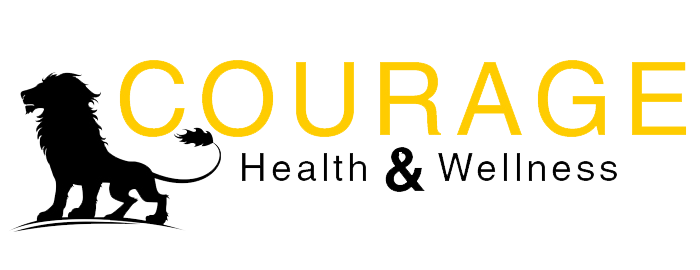Do You Believe in Miracles? Probably.

Do You Believe in Miracles? Probably.
Research on how miracles manifest “in the valley of the shadow of death.”
Posted Aug 19, 2020
Do you believe in miracles? I do. With temperatures in Death Valley (130ºF) breaking records as the hottest ever recorded on Earth, I’ve been reminiscing about all the miraculous experiences I had when the broiling conditions there made it feel as if I was “in the valley of the shadow of death” during the 135-mile Badwater Ultramarathon. A few days ago, I recounted some of these otherworldly and seemingly supernatural experiences in a post, “Pursuing Frictionless Flow Gave Me the Stamina to Keep Going.”
This morning, with Death Valley on my mind, an August 18 news release about a recent study, “In the Valley of the Shadow of Death: Insecurity and Miraculous Experiences,” jumped out at me from a sea of polarizing political news and grim coronavirus updates. Of note: The data used for this recently published research on miraculous experiences was from 2013, long before the COVID-19 pandemic.
The latest evidence-based research (Eschler, 2020) on people’s propensity to believe in supernatural “miracles” by Ed Eschler, a sociology of religion professor at Baylor University, was published on July 7 in the peer-reviewed journal Review of Religious Research.
What defines a miracle?
Eschler describes a miracle as “any experience in which a person believes supernatural agents influenced an event or outcome.” According to Eschler, there’s often a presumption that someone’s likelihood of believing in miracles is associated with “a lack of rational, scientific explanations of phenomena as measured with education or class.” However, until now, surprisingly little research has been done on the “who, what, when where, and why” of our belief that we’ve had miraculous experiences.
For this study, Eschler set out to investigate if being college-educated, having higher socioeconomic status (SES), and other factors affected someone’s statistical odds of believing in miracles.
“Looking at 15,400 respondents from 16 separate countries, I analyze the extent to which experiencing miracles is correlated with education, SES, financial insecurity, cultural traditionalism, and several religious variables,” Eschler explains in his paper. For this study, he focused on countries in Latin America and used data from the 2013 Pew Research Center survey of religious beliefs and experiences.
3 Key Findings
First, Eschler found that, in general, when someone experiences a threat to his or her existence—which can include economic or political instability—they become “ripe” for having a miraculous experience. Notably, 57 percent of respondents “believed they had experienced a miracle of some kind.”
Second, he did not find any correlation between someone’s degree of education and their likelihood of experiencing miracles; people with college degrees were just as likely to report that they’d experienced a miracle as those with no formal education.
“There’s a societal assumption that wealthy and educated people favor scientific, more ‘rational’ explanations for these [miraculous] events,” Eschler said in the news release. “However, there is rising evidence that it has more to do with the security that being rich and educated brings: people who experience fewer existential threats do not rely on religious explanations of events.”article continues after advertisementhttps://0aed635e192c2d3356fc056aaa1c0229.safeframe.googlesyndication.com/safeframe/1-0-37/html/container.html
Eschler’s third finding is that income levels don’t appear to influence someone’s likelihood of experiencing a miracle unless they’re living in “absolute poverty” and unable to afford food, clothing, or medicine. “The richest and most well educated are still more likely to experience miracles if their lives become uncertain or threatened,” Eschler noted.
In a recent Baylor University Q&A, Eschler was asked, “How has the perception of miracles changed throughout history?” He responded:
“Historically, because basically everyone believed in the supernatural, miracles were more common. But as the world has become more secular, we are aware that it could all just be random chance, even if we believe in the divine. What has not changed is that attributions to the divine are a way to bring order into a world where people feel they do not have control.”
Eschler added:
“If we try to define other people’s experiences using our own criteria, there’s a lot we can miss that hinders our ability to hear and understand what they’re saying. An important part of studying people, especially a group that is seen as fringe, is just extending the courtesy of looking at them with empathy and acknowledging that most people believe what they believe because of their life experiences.”
During these times of widespread insecurity, many of us feel like we’re walking “in the valley of the shadow of death” every time we leave the house. As a realist, I’m skeptical that having faith in miracles would ever improve the outcome of a public health crisis or reduce a politician’s Machiavellianism. (See “Optimism May Not Save You, but Pessimism Is Pernicious“)article continues after advertisementhttps://0aed635e192c2d3356fc056aaa1c0229.safeframe.googlesyndication.com/safeframe/1-0-37/html/container.html
Nevertheless, believing in miraculous experiences is uplifting and can give us hope in something divine at a time when the constant barrage of existential threats makes so many of us feel beaten down and hopeless.
References
Edwin Eschler. “In the Valley of the Shadow of Death: Insecurity and Miraculous Experiences.” Review of Religious Research (First published: July 07, 2020) DOI: 10.1007/s13644-020-00419-w
